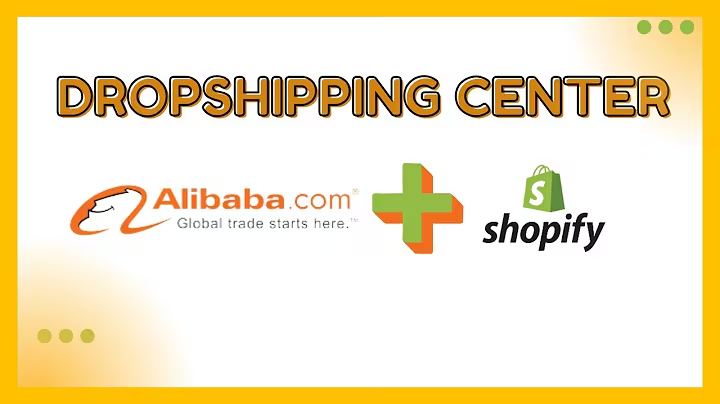Shopify vs. BigCommerce: Which E-commerce Platform is Right for You?
Table of Contents
- Introduction
- Shopify Features and Tools
- Adding Products
- Customizing Themes
- Adding a Domain
- Managing Orders and Payments
- Managing Products
- Managing Customers
- Analytics and Reports
- Marketing and Advertising
- Using Apps
- Selling on External Platforms
- BigCommerce Features and Tools
- Setting Up a Store
- Adding Products
- Customizing Themes
- Managing Orders and Payments
- Managing Products
- Managing Customers
- Analytics and Reports
- Store Front and Marketing Options
- Using Apps
- Selling on External Platforms
- Comparison Between Shopify and BigCommerce
- Pricing
- Ease of Use
- Customization Options
- Scalability
- Customer Support
- Conclusion
Shopify vs. BigCommerce: Which E-commerce Platform is Right for You?
In the world of e-commerce, finding the right platform to build and run your online store is essential. Two popular options are Shopify and BigCommerce. Both platforms offer a range of features and tools to help you create and manage your online store effectively. In this article, we will explore the key features and tools provided by Shopify and BigCommerce, compare their pros and cons, and help you determine which platform is best suited for your business.
1. Introduction
When it comes to choosing an e-commerce platform, there are several factors to consider such as ease of use, customization options, pricing, scalability, and customer support. In this article, we will delve into the features and tools offered by Shopify and BigCommerce, two leading platforms in the market, and explore how they stack up against each other.
2. Shopify Features and Tools
2.1 Adding Products
One of the fundamental tasks of running an online store is adding and managing products. Shopify provides a user-friendly interface to easily add new products. You can input product information such as title, description, media (photos or videos), pricing, inventory, and shipping details. Shopify also offers the option to add variations and customize product options. The platform allows you to organize and categorize your products effectively.
2.2 Customizing Themes
Shopify offers a wide range of customizable themes to give your online store a unique look and feel. You can change colors, fonts, and layouts to align with your brand. With both free and paid themes available, you have the flexibility to choose a design that matches your business needs. Shopify also provides access to the Shopify app store, where you can download various applications to enhance your store's functionality.
2.3 Adding a Domain
Having a custom domain for your online store enhances credibility and helps customers find your website easily. Shopify allows you to add a domain directly through the platform. You can either purchase a new domain or connect an existing one. Shopify offers a seamless process to set up and manage your domain, making your online store appear more professional.
2.4 Managing Orders and Payments
Shopify provides robust tools to manage your orders and accept payments from customers. The platform offers a user-friendly interface to organize and track orders efficiently. Shopify supports various payment gateways, including PayPal, Stripe, and Shopify Payments. You can also integrate with external payment processors for added flexibility.
2.5 Managing Products
Shopify's product management tools allow you to easily update and track inventory levels, set price rules, create discounts, and manage product variants. With the ability to add product images and descriptions, you can showcase your products effectively and provide detailed information to potential customers.
2.6 Managing Customers
Shopify's customer management tools allow you to keep track of customer information, including their purchase history and contact details. You can analyze customer data to gain insights into their buying behavior and preferences. This information can help you tailor your marketing campaigns and provide personalized experiences for your customers.
2.7 Analytics and Reports
Shopify provides comprehensive analytics and reports to give you a clear picture of your store's performance. You can track key metrics such as total sales, online store sessions, conversion rate, and average order value. These insights enable you to make data-driven decisions and optimize your marketing strategies.
2.8 Marketing and Advertising
Shopify offers built-in marketing and advertising tools to help you promote your online store. You can run ad campaigns on popular platforms like Facebook and Snapchat directly from the Shopify dashboard. The platform also integrates with various email marketing services, allowing you to engage with your customers through targeted email campaigns.
2.9 Using Apps
Shopify's app store provides a wide range of applications that can enhance the functionality and features of your online store. You can find apps for SEO optimization, inventory management, social media integration, and more. These apps allow you to customize your store further and streamline your business operations.
2.10 Selling on External Platforms
Shopify allows you to expand your reach by selling your products on external platforms such as Facebook and Google. With a few simple steps, you can connect your online store to these platforms and increase your visibility to potential customers. This feature enables you to tap into a broader customer base and drive more sales.
3. BigCommerce Features and Tools
[Continued in the next response...]


















